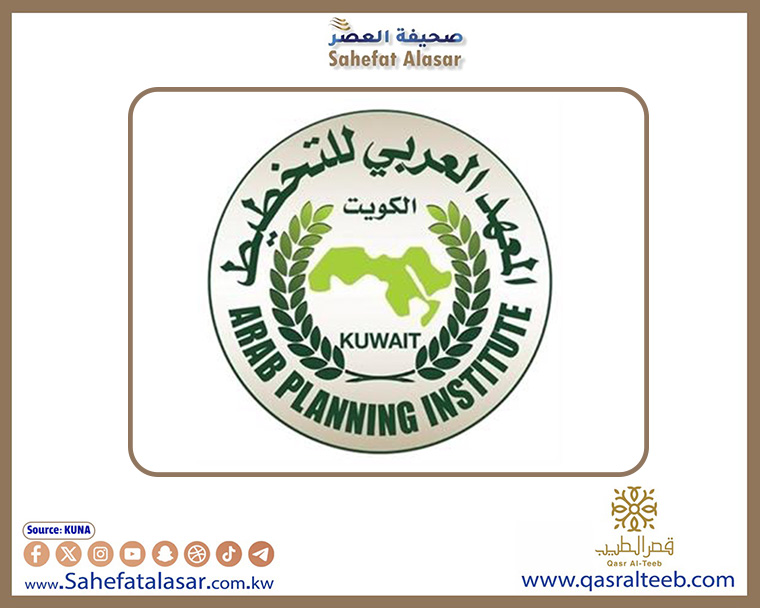


The Director-General of the Arab Planning Institute (API), Dr. Abdullah Al-Shammari, affirmed on Monday the institute’s commitment to supporting efforts aimed to achieve the (2030 Sustainable Development Goals), particularly those related to good health and well-being, and clean water—"all of which are interconnected goals that cannot be overlooked in achieving comprehensive development."
This came in Al-Shammari’s speech during the opening of the training program (Health Surveillance, Air Quality, and Sustainable Treatment of Hazardous Waste), organized by the institute over two days in partnership with the Arab League Educational, Cultural and Scientific Organization (ALECSO).
Al-Shammari stated that the issues addressed by this program are not merely environmental or health-related in the traditional sense but are at the core of the strategic challenges facing sustainable development plans in the Arab world.
He added that environmental quality, health system vigilance, and the sustainable management of hazardous waste have become key indicators in measuring countries’ readiness and ability to protect people, the environment, and resources.
He explained that the Arab Planning Institute considers this program a model for Arab institutional cooperation, combining vision, expertise, and specialized scientific content, driven by a belief in the importance of building Arab capacities and exchanging knowledge and experiences.
He noted that this program contributes to supporting several (2030 Sustainable Development Goals), including Goal 3 (Good Health and Well-being), Goal 6 (Clean Water and Sanitation), and Goal 13 (Climate Action).
Al-Shammari expressed his hope that this program would serve as a platform for exchanging expertise, raising awareness, and building effective partnerships among various Arab institutions working in the fields of environment, health, and development. He also praised the ongoing efforts of ALECSO in supporting developmental issues in the Arab world.
For his part, the Director of the Department of Science and Scientific Research at ALECSO, Dr. Mohamed Abu Darwish, emphasized in a similar speech the importance of strengthening purposeful partnerships to achieve comprehensive and sustainable development in the Arab region.
Abu Darwish stated that health and environmental challenges are no longer limited to developing countries but have become global issues affecting everyone. He pointed out that diseases caused by air and water pollution are on the rise, and the problem of hazardous medical waste is worsening, especially in light of health pandemics.
He added that these challenges require a comprehensive and interconnected response, explaining that the program aims to attract elite experts and decision-makers to discuss these issues and provide practical, applicable solutions.
He noted that addressing these challenges requires close coordination between government and academic sectors, cooperation between the public and private sectors, and civil society institutions. He stressed that exchanging successful experiences among Arab countries and openness to international best practices form the foundation for building more resilient and sustainable health and environmental systems.
He expressed his hope that this program would achieve a set of practical objectives, most notably raising awareness of health surveillance concepts, developing institutional capacities in air quality and waste monitoring, producing actionable recommendations, and integrating these concepts into academic curricula and vocational training programs.
The program includes five sessions on the first day: (Health Surveillance Towards a Sustainable Health System), (Monitoring and Improving Air Quality), (Sustainable Treatment of Medical and Hazardous Waste), (Health Awareness, Policies, and Environmental and Health Legislation), and (Arab Experiences in Achieving Arab Air Quality and Sustainable Treatment of Hazardous Medical Waste).
The second day will feature five sessions: (Successful Global Experiences in Medical Waste Management), (Integrating Health Surveillance Concepts into Educational Curricula), (Incorporating Medical Waste Management into Academic Programs), (Innovative Solutions and Modern Technologies), and (Arab Experiences in Achieving Arab Air Quality and Sustainable Treatment of Hazardous Medical Waste).
It is worth noting that the Arab Planning Institute is an independent, non-profit regional Arab organization headquartered in Kuwait, established in 1980. It aims to support economic and social development in Arab countries through capacity building, research, advisory services, institutional support, developmental meetings, publishing, and initiatives in entrepreneurship and informatics.
